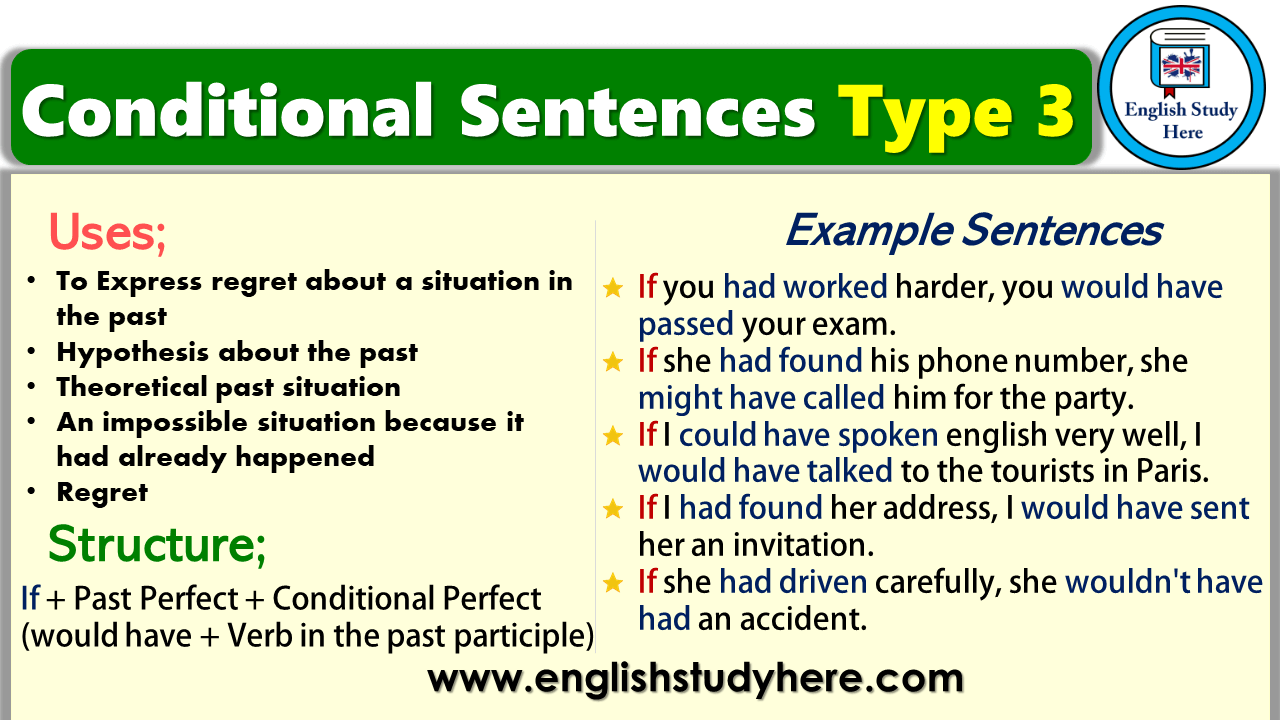In English grammar, the third conditional is used to talk about a situation that didn’t happen in the past because a certain condition was not met. It is used to talk about hypothetical situations and their possible outcomes. Third conditional sentences typically begin with “If” followed by a past perfect verb and then “would have” followed by a past participle.
Third conditional sentences are used to express regret or to imagine different outcomes of past events. They are often used to talk about things that could have been different if a certain condition had been met. Let’s take a look at some examples of third conditional sentences.
Examples:
If I had studied harder, I would have passed the exam.
If she had taken the bus, she wouldn’t have missed the train.
If they had left earlier, they wouldn’t have been stuck in traffic.
If he had listened to the weather forecast, he wouldn’t have forgotten his umbrella.
If we had booked our tickets in advance, we would have saved a lot of money.
Third conditional sentences are a great way to express hypothetical situations and their outcomes. By using “If” followed by a past perfect verb and “would have” followed by a past participle, we can talk about what could have been if things had been different in the past.
Next time you want to talk about a situation that didn’t happen because a certain condition was not met, try using third conditional sentences to express your thoughts and ideas.
